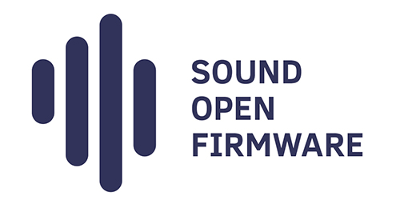ACRN™ is a flexible, lightweight reference hypervisor with significant code contributions from Intel® Corporation
PORTLAND, Ore. (Embedded Linux Conference), March 13, 2018 – The Linux Foundation today announced a new embedded reference hypervisor project called ACRN™ (pronounced “acorn”). With engineering and code contributions from Intel® Corporation, the hypervisor was built with real-time and safety-criticality in mind, and optimized to streamline embedded development. This project will provide a framework for industry leaders to build an open source embedded hypervisor specifically for the Internet of Things (IoT).
ACRN is comprised of two main components: the hypervisor and its device model, complete with rich I/O mediators. Intel’s experience and leadership in virtualization technology was key to the initial development of this hypervisor solution.
“With project ACRN, embedded developers have a new, immediately available hypervisor option,” said Jim Zemlin, executive director of The Linux Foundation. “ACRN’s optimization for resource-constrained devices and focus on isolating safety-critical workloads and giving them priority make the project applicable across many IoT use cases. We’re pleased to welcome project ACRN and invite embedded developers to get involved in the new community.”
Developers benefit from ACRN’s small, real-time footprint, which is flexible enough to accommodate different uses and provides consideration for safety-critical workloads. Consolidating a diverse set of IoT workloads with mixed-criticality on to a single platform helps reduce both development and deployment costs allowing for a more streamlined system architecture. An example of this is the electronic control unit (ECU) consolidation in automotive applications. While open source hypervisor options are available today, none share ACRN’s vision of an open source hypervisor solution optimized for embedded and IoT products.
“ACRN will have a Linux-based service OS and the ability to simultaneously run multiple types of guest operating systems providing a powerful solution for workload consolidation,” said Imad Sousou, corporate vice president and general manager of the Open Source Technology Center, at Intel® Corporation. “This new project delivers a flexible, lightweight hypervisor, designed to take real-time and safety-critical concerns into consideration and drive meaningful innovation for the IoT space.”
Open source audio firmware and SDK from Intel Corporation enable developers with tools to adapt operating systems for audio devices
PORTLAND, Ore. (Embedded Linux Conference), March 14, 2018 – The Linux Foundation announced today that Sound Open Firmware (SOF) has become a Linux Foundation project. With significant engineering and code contributions from Intel® Corporation, SOF includes a digital signal processing (DSP) firmware and an SDK that together provide infrastructure and development tools for developers working on audio or signal processing. Intel and Google support SOF and invite others to join them in advancing the project.
While many audio drivers ship with open source components, firmware has remained closed and shipped as binary modules. As a result, firmware issues have often been difficult to address. With SOF, developers and users may be able to debug and resolve issues more quickly and optimize footprint and performance by adding only the functionality needed for their products. It will also offer developers the ability to improve security by independently assessing code quality. The project is the first fully open source BSD/MIT-licensed audio firmware. The SOF firmware and drivers are platform- and architecture-agnostic.
“We’re pleased to welcome Sound Open Firmware to The Linux Foundation and to support the SOF community in its growth,” said Jim Zemlin, executive director of The Linux Foundation. “By giving developers access to the hardware interface to the operating system, SOF will help them add more value and customization to their products.”
The SOF open source SDK comes with five components: the firmware source code, firmware tools to convert firmware into appropriate formats and debug, a tool chain for firmware image creation, an emulator to trace and debug drivers and firmware, and ASoC Linux kernel drivers that are required to register the DSP and firmware. These tools include scripts to help developers evaluate tradeoffs between memory, audio quality, and processor load. SOF will provide code signature tools for production devices. The project also has GNU Debugger integration, a feature contributed by Google.


